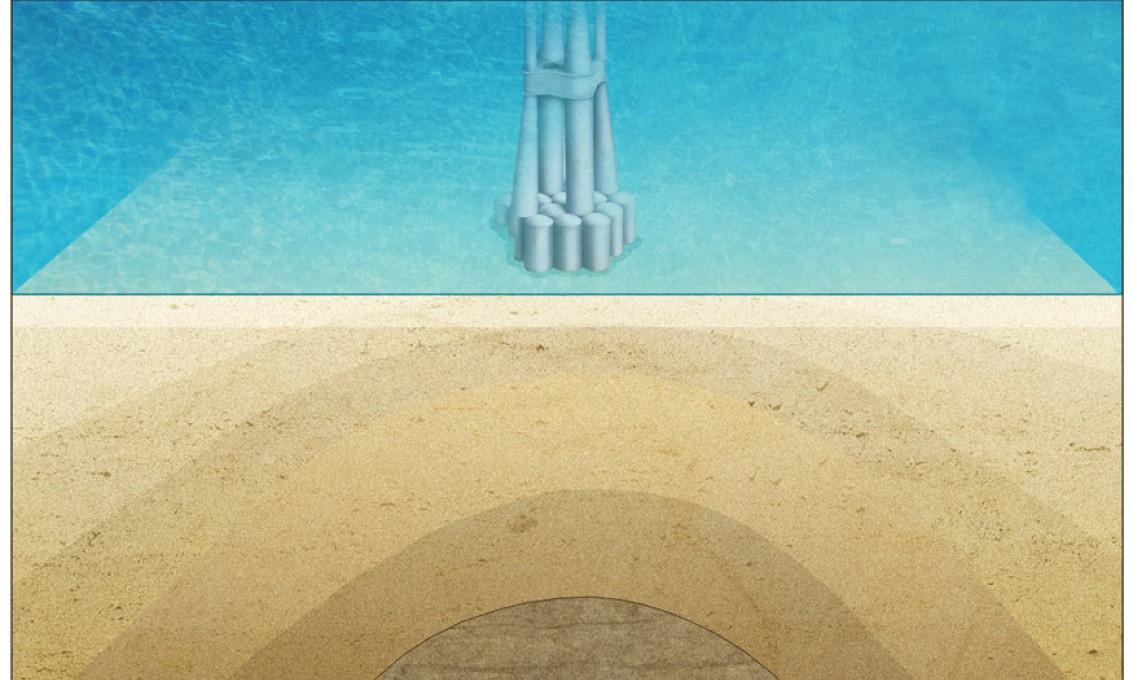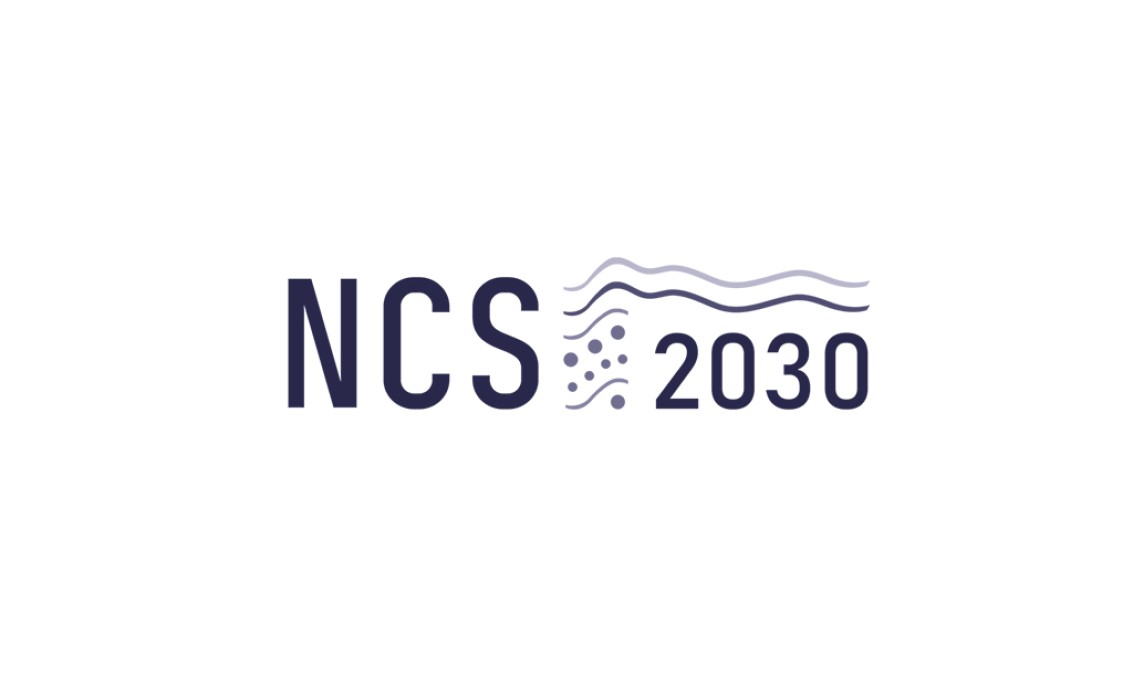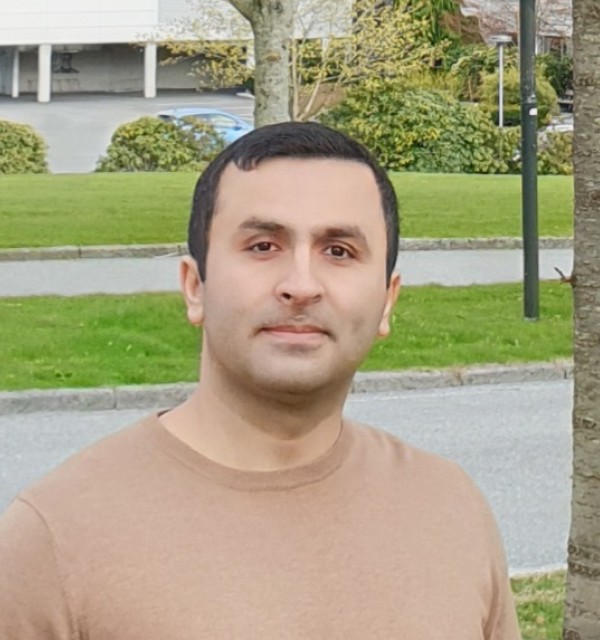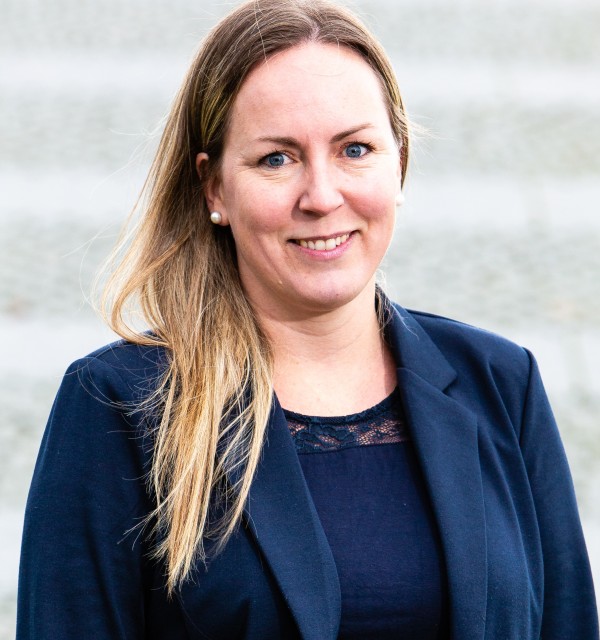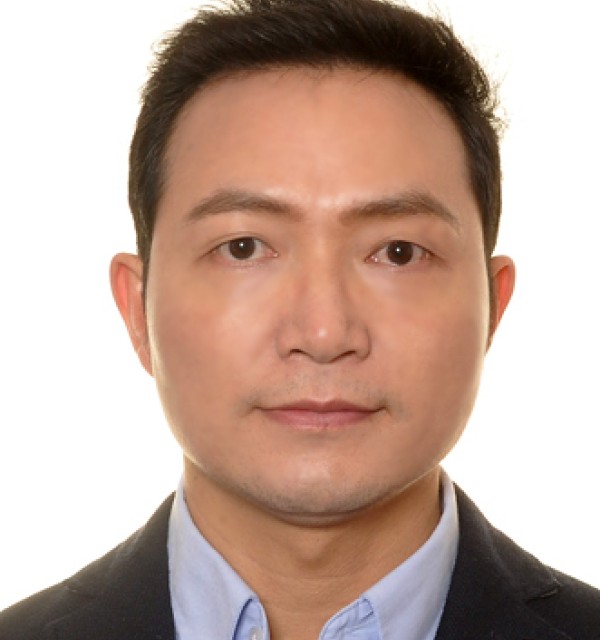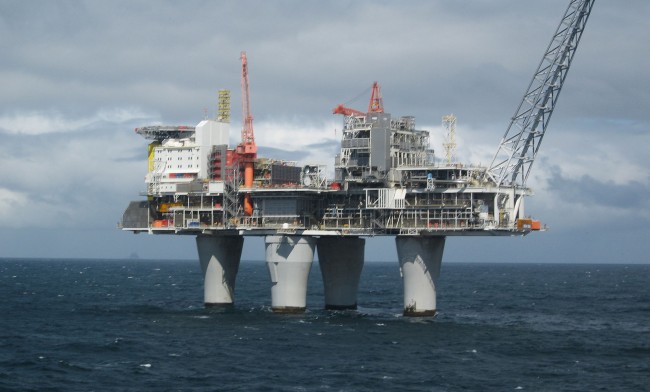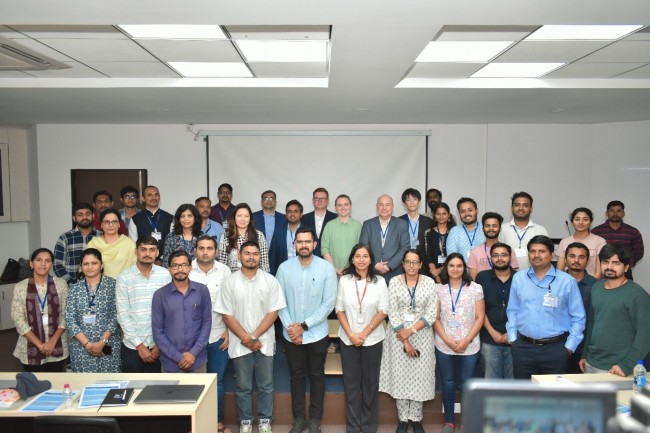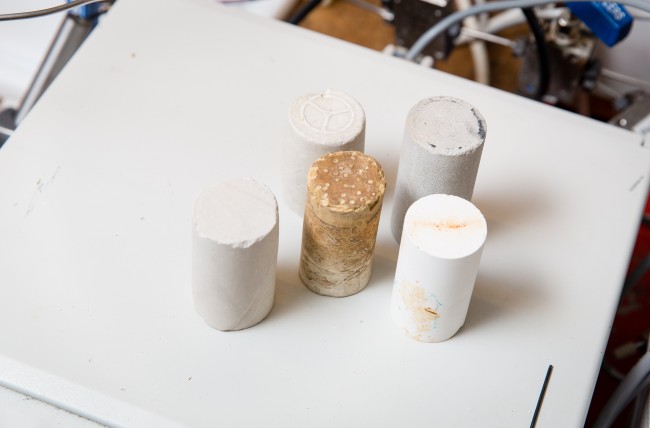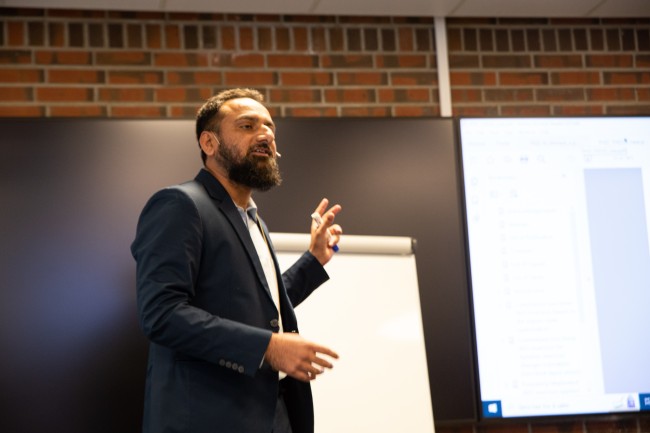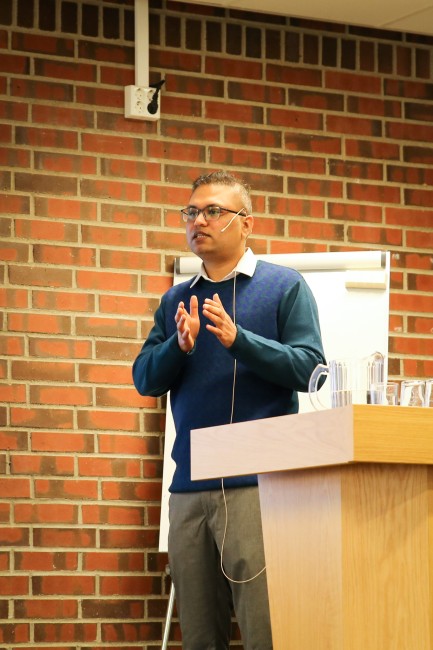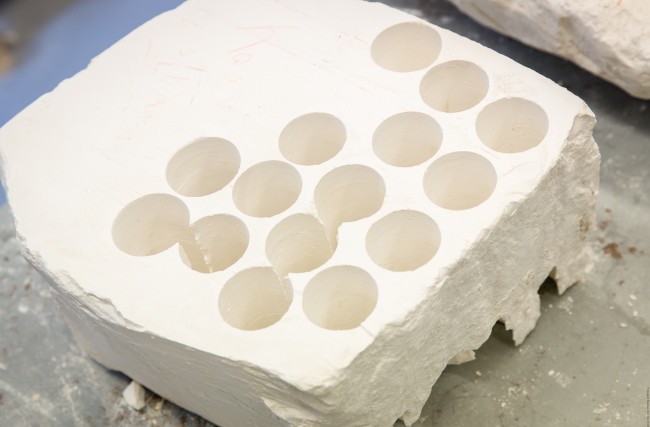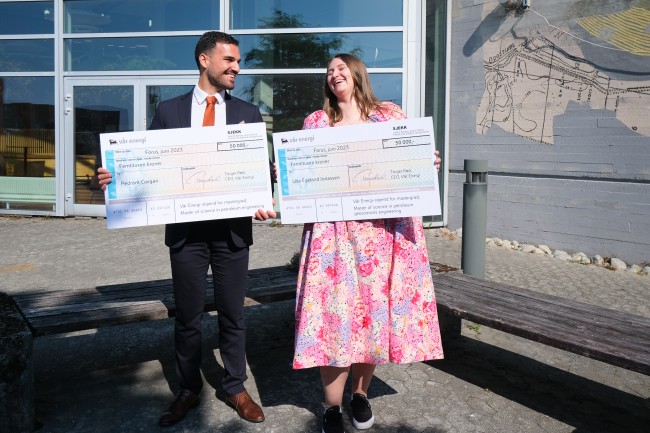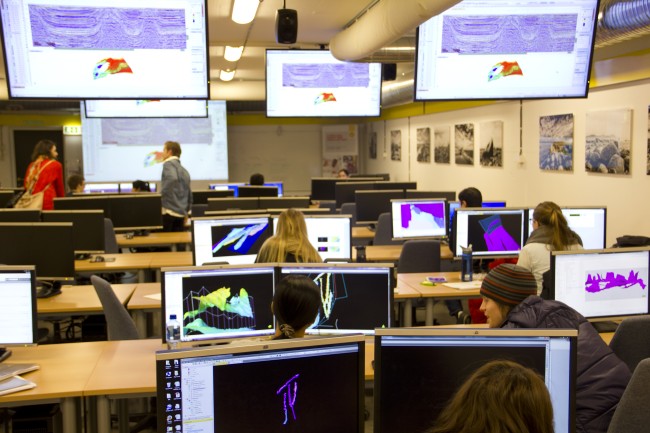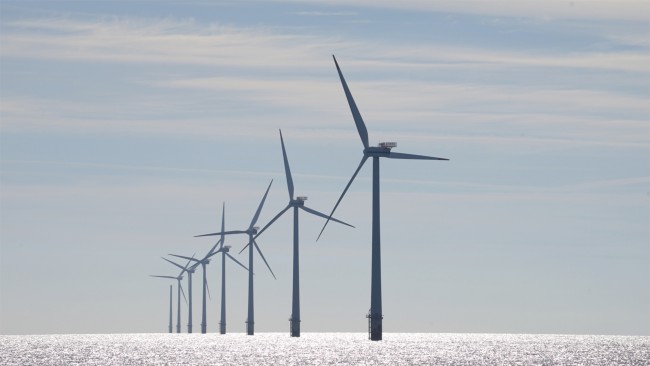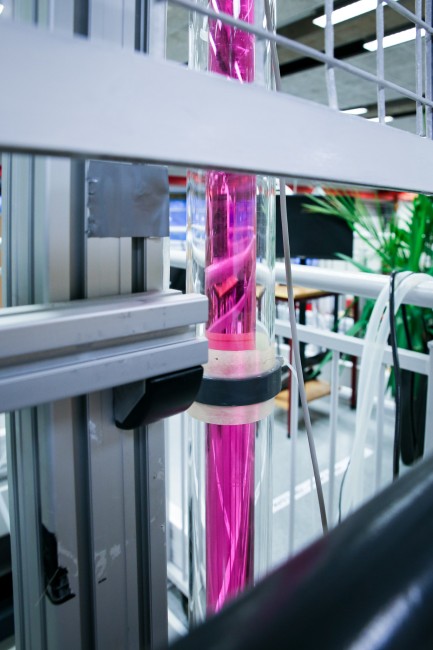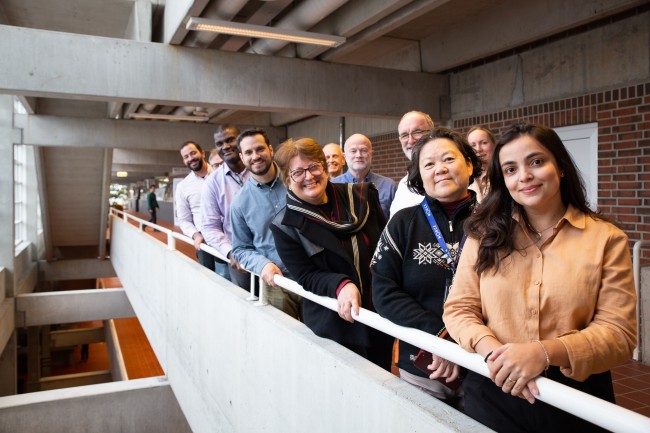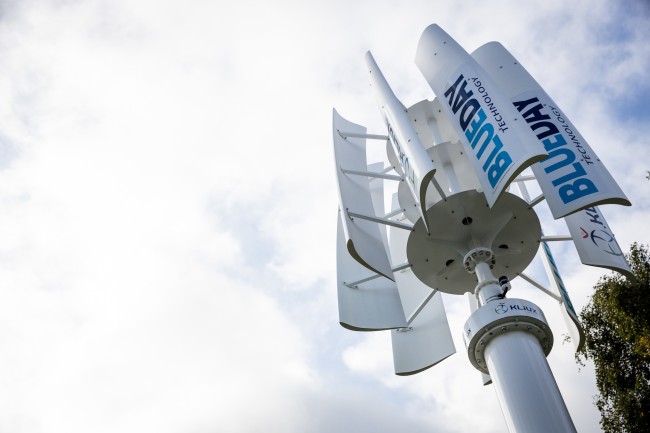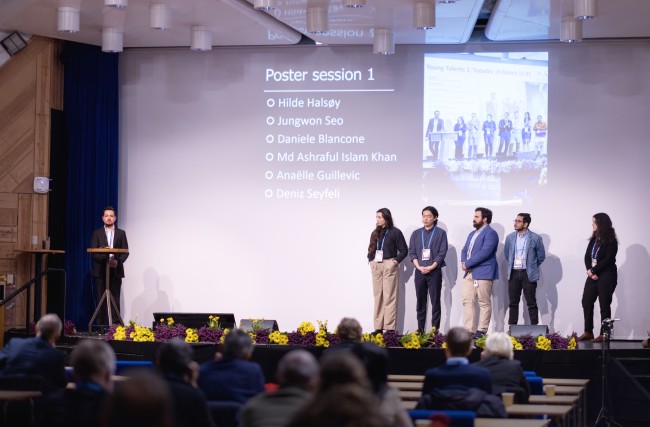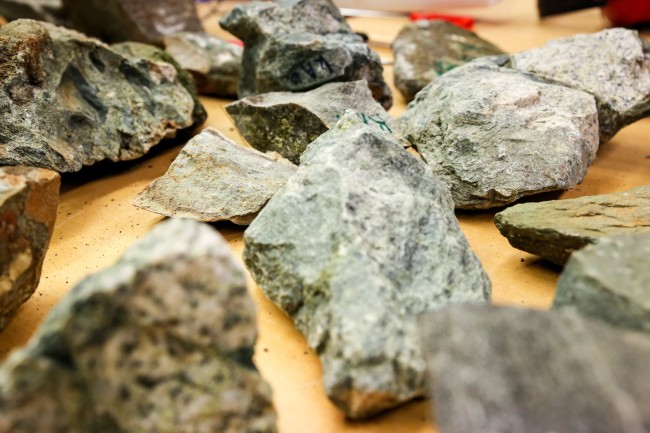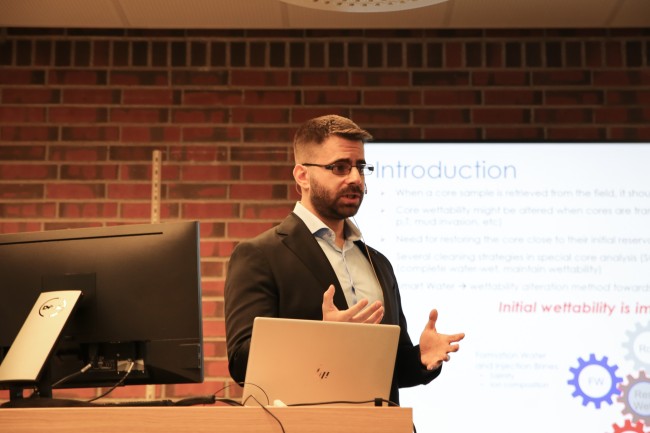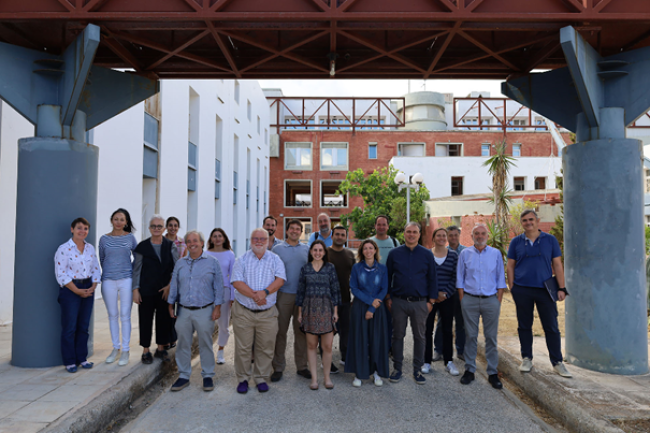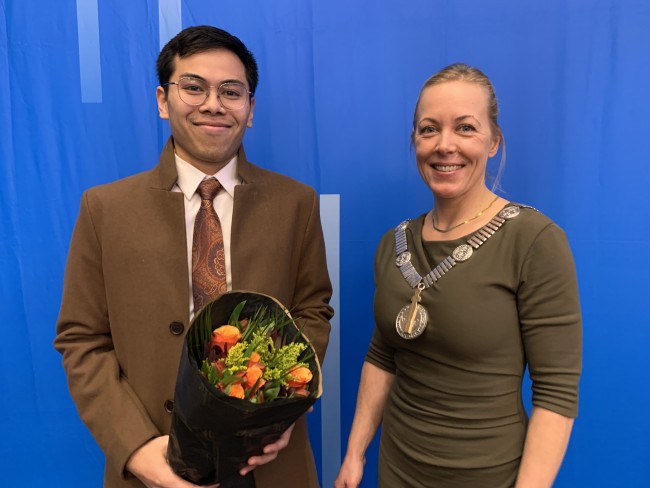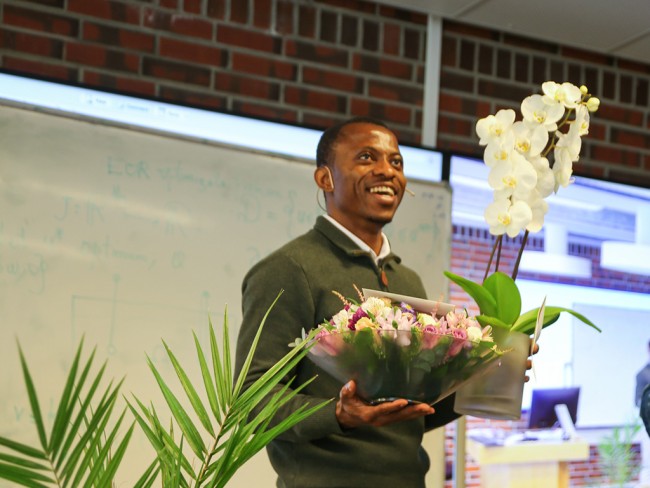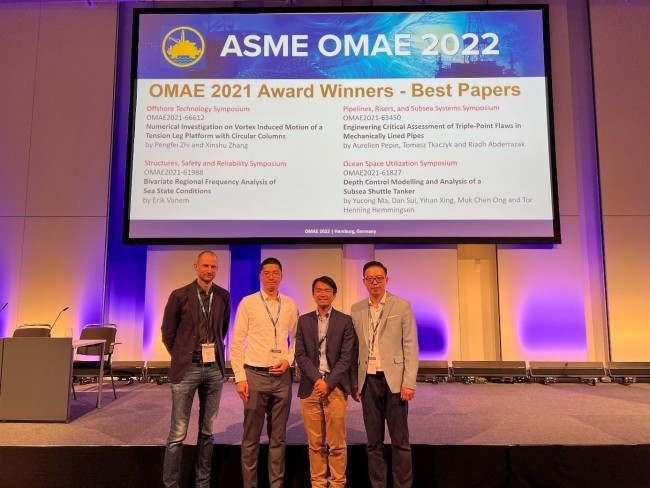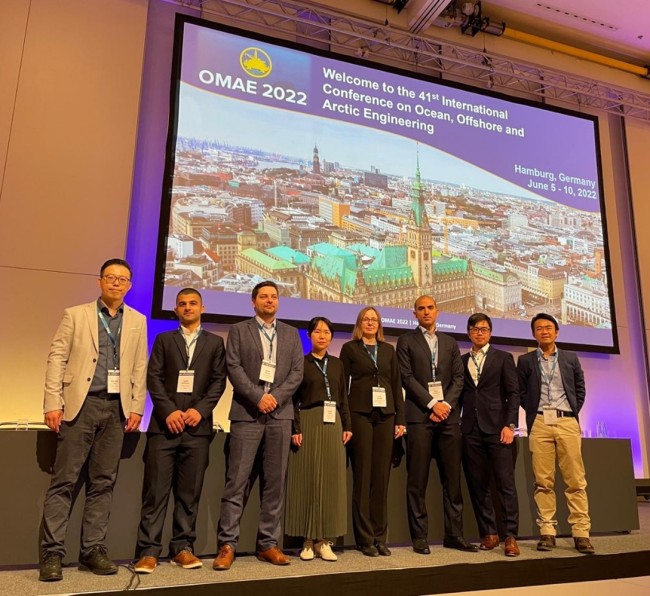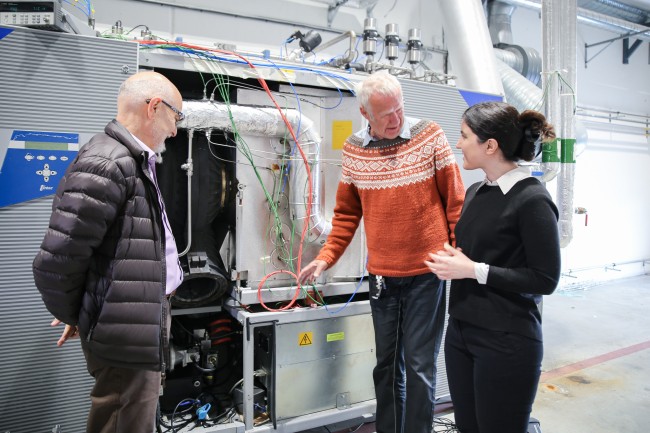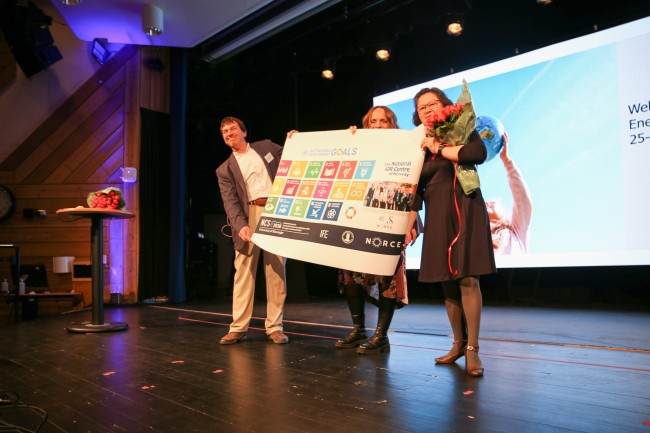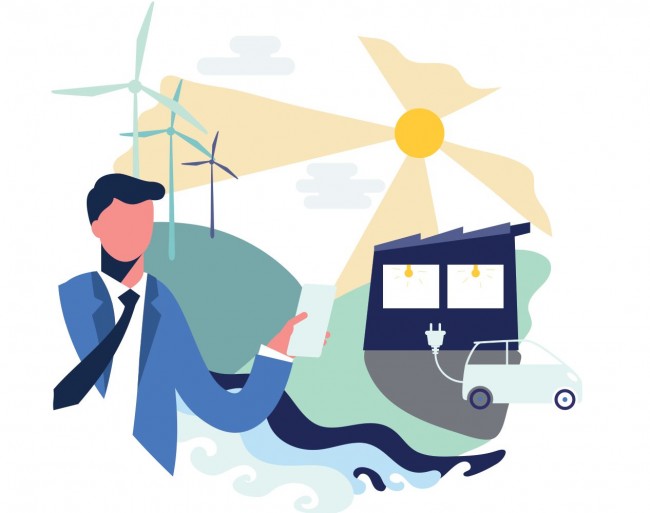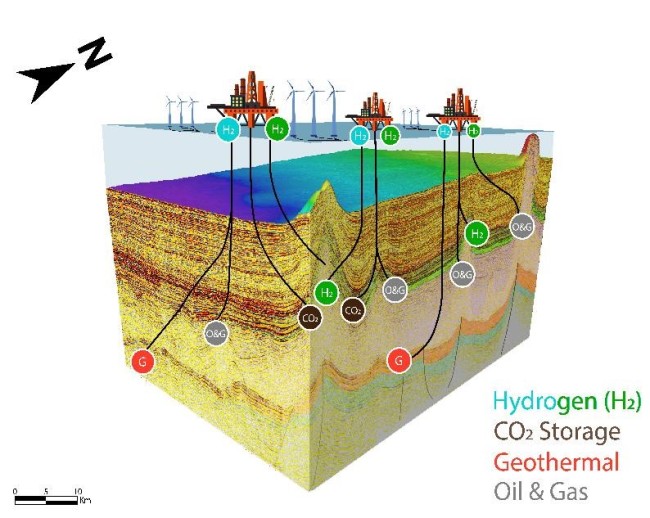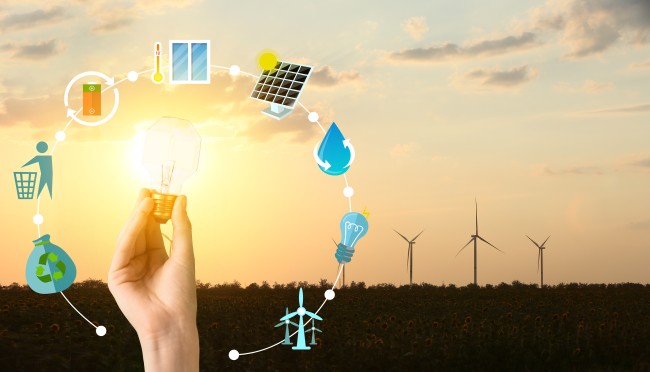The European Union is facing a pressing challenge to transition into a carbon neutral economy by 2050. Researchers from University of Stavanger are participating in a new research project to investigate the key elements of this transition.
Horizon Europe Programme
HORIZON-WIDERA-2021-ACCESS-03
Raoof Gholami

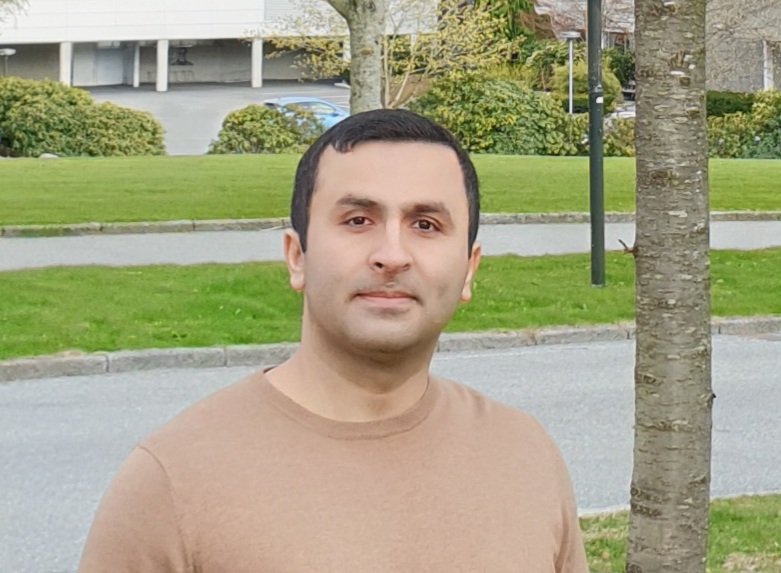
The intermediate target is 55% CO2 reduction emissions in comparison to 1990. Climate neutrality goals as dictated by the EU Climate Law and the EU’s “Fit for 55” package will be implemented via the EU Green Deal, namely the EU’s industrial strategy. However, careful strategic, large-scale investments in enabling technologies and processes are required which will be relevant to each member state’s strengths and weaknesses. This way, resilient societies can be built around sustainable energy transition pathways for each state with parallel re-direction of resources for transformation of knowledge into technologies and skills of the workforce within sustainable and functioning ecosystems.
Twinn2set is part of the Twinning Coordination and Support action, which aims to improve cooperation and capacity building between partners. In Twinn2set, we are collaborating with colleagues from the Institute of Geoenergy (FORTH) in Greece and IFP Énergies nouvelles (IFPEN) in France to investigate the key elements of the energy transition from an underground perspective (i.e., geothermal, CO2 storage and hydrogen storage), with a research focus on hydrogen storage in porous media, among others.
The project is coordinated by FORTH in Greece, while Prof. Raoof Gholami is the project leader representing the Department of Energy resources at UiS.
"In this project, we will share knowledge and help each other to improve our research capacity in underground hydrogen storage and help FORTH to establish a state-of-the-art laboratory on their campus," says Raoof Gholami.
Twinn2set had its kick-off in Chania Crete on October 2nd. This initiative acts as an associated collaborative project to the NCS2030 research centre at UiS and other research projects at the Department of Energy Resources.
Read more: Twinn2set project page
UiS team
Department of Energy Resources
Department of Energy Resources
Related articles
Call for abstracts: Workshop on the "Empire and Capitalism" project
We invite scholars and researchers to contribute to a research workshop retreat exploring the imperial continuities with...
HyTack: Tackling the Challenges in Hydrogen Economy through Education and Research
The HyTack project aims at developing and providing an educational base in the field of hydrogen technology to the stude...
Data-driven mathematical modelling
Mathematical models enable a scientific understanding of natural phenomena around us, and the study and optimization of ...
Analytical Solutions Toolbox for Multiphase Core Analysis
Developing a digital toolbox for Special Core Analysis (SCAL).
Seismic inversion methods for reservoir characterisation
Nisar Ahmed has developed a workflow for seismic inversion methods to estimate the rock-properties in a reservoir.
Impact Case: The National IOR Centre of Norway
The National IOR Centre has provided cost efficient and environmentally friendly solutions for improved oil recovery on ...
Empire and Capitalism: A Renewed Exploration of Extractive Activities in the North Sea
This research initiative aims to shed light on imperial logics and practices of extractive activities in the North Sea d...
Environmental risk assessment of enhanced oil recovery solutions
In his PhD work, Mehul Vora has contributed to new knowledge about the environmental risk related to shortlisted product...
Special Core Analysis – Modeling, Experimental Design and Upscaling
Prediction of subsurface multiphase or single-phase flow processes is challenging, but important for oil and gas product...
Industry awards to energy students
Repsol and Vår Energi awarded a total of nine prizes and NOK 350,000 to bachelor and master students at UiS.
What does the energy industry need?
Researchers at University of Stavanger have asked the industry to define their education needs in the years to come.
Large Offshore Wind Turbines: Structural design accounting for non-neutral wind conditions
How to reduce cost of energy for future large offshore wind turbines in free-wind and wake conditions by using full-scal...
Laboratories for drilling and well technology
Within the field of drilling and well-technology, there are several laboratories conected to the Faculty of Science and ...
3 million for green offshore research
UiS researchers got funding for Polish-Norwegian collaboration.
Won prize for best PhD project
Huong Huynh finished her PhD project at University of Stavanger October 2021. Now her PhD thesis has been selected as Be...
INTPART: Brazil-Norway Research Education and Competence transfer
The objective of this project is to establish long-term excellent collaboration within Improved Oil Recovery (IOR) educa...
Laboratories for sustainable energy systems
The Faculty of Science and Technology at UiS has several laboratories within the field of sustainable energy systems. He...
Energy Norway 2023 summed up
This year's conference theme: Subsurface for energy security and sustainability.
Laboratories for geology and reservoir
The Faculty of Science and Technology at UiS has several laboratories within the field of geology and reservoir. Here is...
Understanding the initial wettability of reservoirs
Panagiotis Aslanidis defended his thesis on wettability for core analysis. The purpose of his research was to link reser...
Kick-off for new energy transition project
The European Union is facing a pressing challenge to transition into a carbon neutral economy by 2050. Researchers from ...
Won Innovation Award for master's students
On the 25th of October 2022, Izwan Ahmad was awarded the 2022 Innovation Awards for master’s students by Rogaland county...
This invention produces electricity from marine and riverine currents
Researchers at UiS have developed an energy converter that creates electricity from sea currents and river flows.
Waste Heat Energy Integration, Storage and Utilization
Heating and cooling in buildings and industry are responsible for half of energy consumption in Europe. They have also p...
ACT3 – CEMENTEGRITY
The CEMENTEGRITY project seeks to develop and test better materials for sealing wellbores exposed to CO2 stored in under...
Defended his thesis on reservoir optimization
Micheal B. Oguntola has studied optimization and modelling of enhanced oil recovery injection strategies in his PhD proj...
Paper from UiS won the best paper award
The paper was awarded at the 40th International Conference on Ocean, Offshore and Arctic Engineering (OMAE2021).
Scholarship awarded to 6 UiS PhDs
Only 25 young researchers around the world were selected to participate in the OMAE2022 Outreach for Engineers Forum. 6...
First gas turbine powered by pure hydrogen
Researchers at the University of Stavanger (UiS) have managed to run a gas turbine on 100 percent hydrogen.
Industrial Asset Management
Smart Assets, Digital and Integrated Operations, and Condition monitoring and Maintenance Analytics.
Solar Energy Research Group
Solar Energy Research Group seeks to overcome barriers to world solar adoption by connecting solar energy researchers fr...
Energy Norway 2022 summed up
The first Energy Norway conference was arranged 25-26 April 2022. Theme: Subsurface utilization for energy transition.
Defining Future Subsurface Education Needs in Collaboration with the Energy Industry
This project (SUBSET) aims to increase the relevance of subsurface course content to actual needs in the energy indust...
Strengthening education and research in Applied Informatics for Energy System Integration
The 5-year NORPART project "Applied Informatics for Energy System Integration" (AI-ESI) aims to make a contribution by...
Subsurface Utilization for Renewable Energy
The Subsurface Utilisation and Renewable Energy group addresses the latest issues related to the energy transition, unde...
Education and outreach
The number of students in petroleum-related topics at universities in Norway has dramatically declined and the supply of...
Energy policy, economy and society
The role of the Norwegian Continental Shelf in the future energy system depends on the national and international busine...
